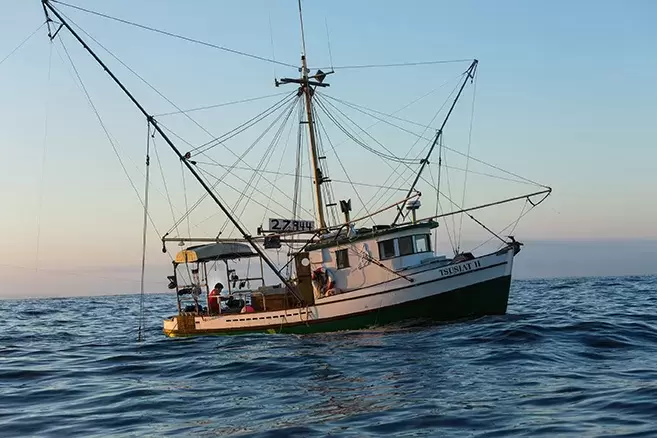Five Nuu-chah-nulth First Nations are fed up with Prime Minister Justin Trudeau’s lack of commitment to ‘Nation-to-Nation’ reconciliation. Yesterday, representatives from the Nations, known as T’aaq-wiihak, entered court to make closing arguments on a lengthy battle about their Aboriginal commercial fishing rights.
After enduring frustrating presentations by Canada for 11 days and the intervenors for an additional two days, the five Nuu-chah-nulth First Nations’ legal team, Mr. Matthew Kirchner and Ms. Lisa Glowacki, began their legal argument in B.C. Supreme Court for the Nations’ case, Ahousaht et al vs. Canada, and to correct the many misrepresentations of the evidence.
“Prime Minister Trudeau says no relationship is more important than the relationship with First Nations,” said Ken Watts, Vice President of the Nuu-chah-nulth Tribal Council. “Meanwhile, Canada’s lawyers are calling the Nations’ recognized rights “low level,” and Department of Fisheries and Oceans Canada (DFO) staff are meeting with the five Nations and saying we’re not here to negotiate.”
Watts referred to an incident late September when lead negotiators of the five Nations dismissed DFO staff from a meeting due to staff admitting they had nothing new to negotiate.
Shortly after, at a quarterly meeting of the Chiefs on fisheries-related issues, nine Nuu-chah-nulth Nations agreed to stand with the other five Nuu-chah-nulth Nations and not invite DFO to another meeting that the federal government usually attends.
“The Nations aresending a clear message to Prime Minister Trudeau that ‘showing up’ at meetings just isn’t good enough,” said Watts. “Almost seven years since the trial decision, Canada has yet to seriously negotiate and implement detailed fishing plans for sustainable fisheries based on the recognition of the Nations’ Aboriginal rights.”
The original trial decision provided Canada and the five Nuu-chah-nulth Nations-- Ahousaht, Hesquiaht, Ehattesaht, Mowachaht/Muchalaht and Tla-o-qui-aht—two years to negotiate a regime based on the recognition of Nuu-chah-nulth Aboriginal commercial fishing rights.
Frustrated by the continued stalling and inaction by Canada, the five Nations returned to court in March 2015. In the current “Justification” trial, Canada must prove that it can justify the proven and on-going infringements of the Aboriginal rights of the five Nations.
Since the two ‘un-invitations,’ both Heiltsuk and Haida First Nations, the First Nations Leadership Council (FNLC) and others pledged their support of the actions taken by the Nuu-chah-nulth. Watts said during a radio interview that many non-First Nations people have also reached out in support of Nuu-chah-nulth First Nations since the decision.
“A retired commercial fisherman and many other Canadians have said they stand with us, that the government is ignoring our rights, and we have a right to be on the water and fish and sell fish.”
In Minister of Justice and Attorney General of Canada Jody Wilson-Raybould’s speech to the B.C. Cabinet and First Nations Leaders’ Gathering in Vancouver on Sept. 7, she refers to “push[ing] past our established patterns and ways of thinking, acting, and relating” with respect to First Nations peoples. “It means not fighting battles that have already been won.”
Although, a year after Canadians elected the new Liberal government, the five Nuu-chah-nulth Nations are still waiting for the words of the Minister and Prime Minister to translate into action.
“We want our fishers to be on the water instead of in court,” said Watts. “There’s a connection between economic prosperity and healthy communities, and our Nations have waited far too long for the implementation of our Aboriginal commercial fishing rights to the detriment of our communities’ livelihood, quality of life, and health.”







